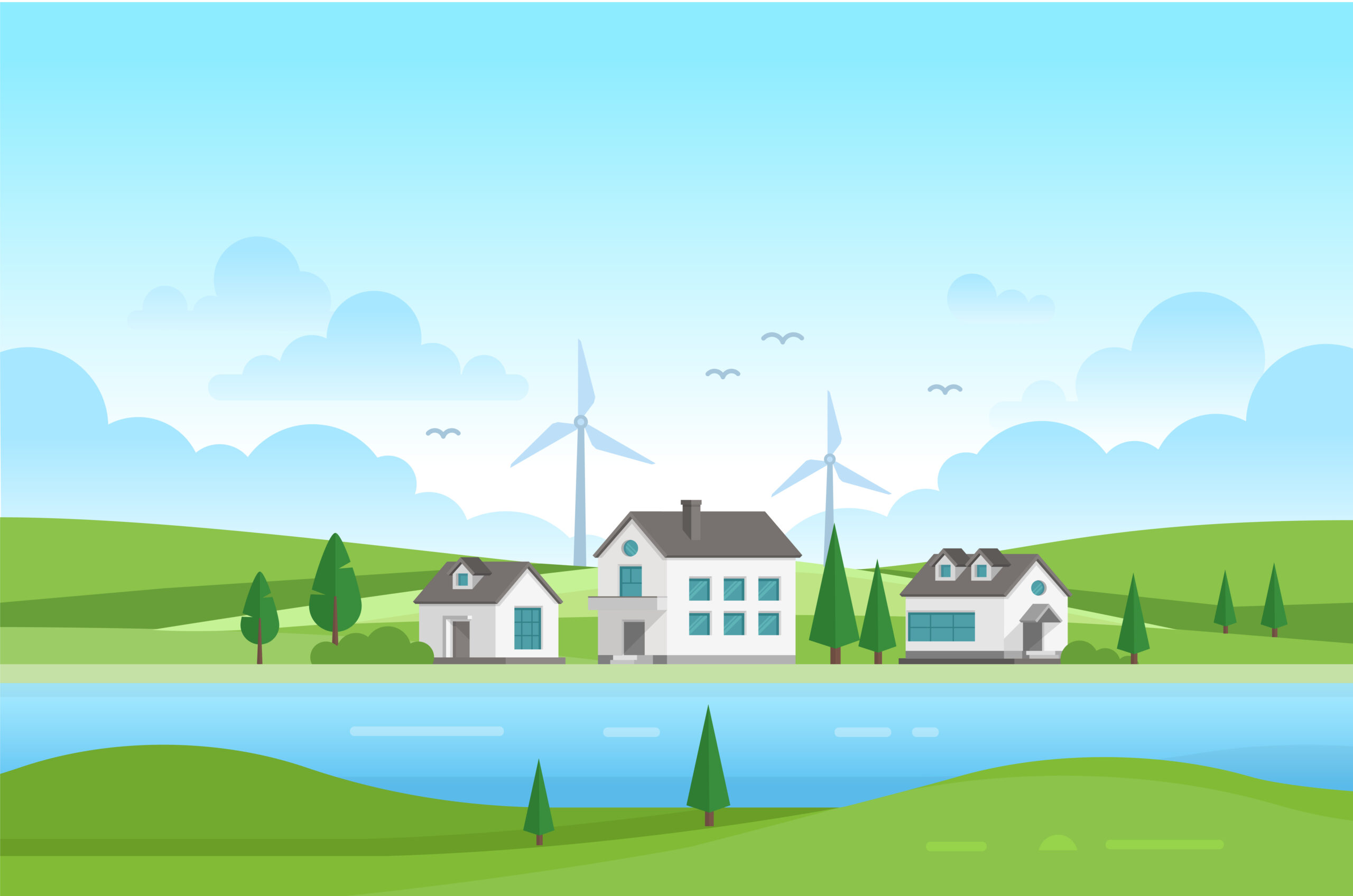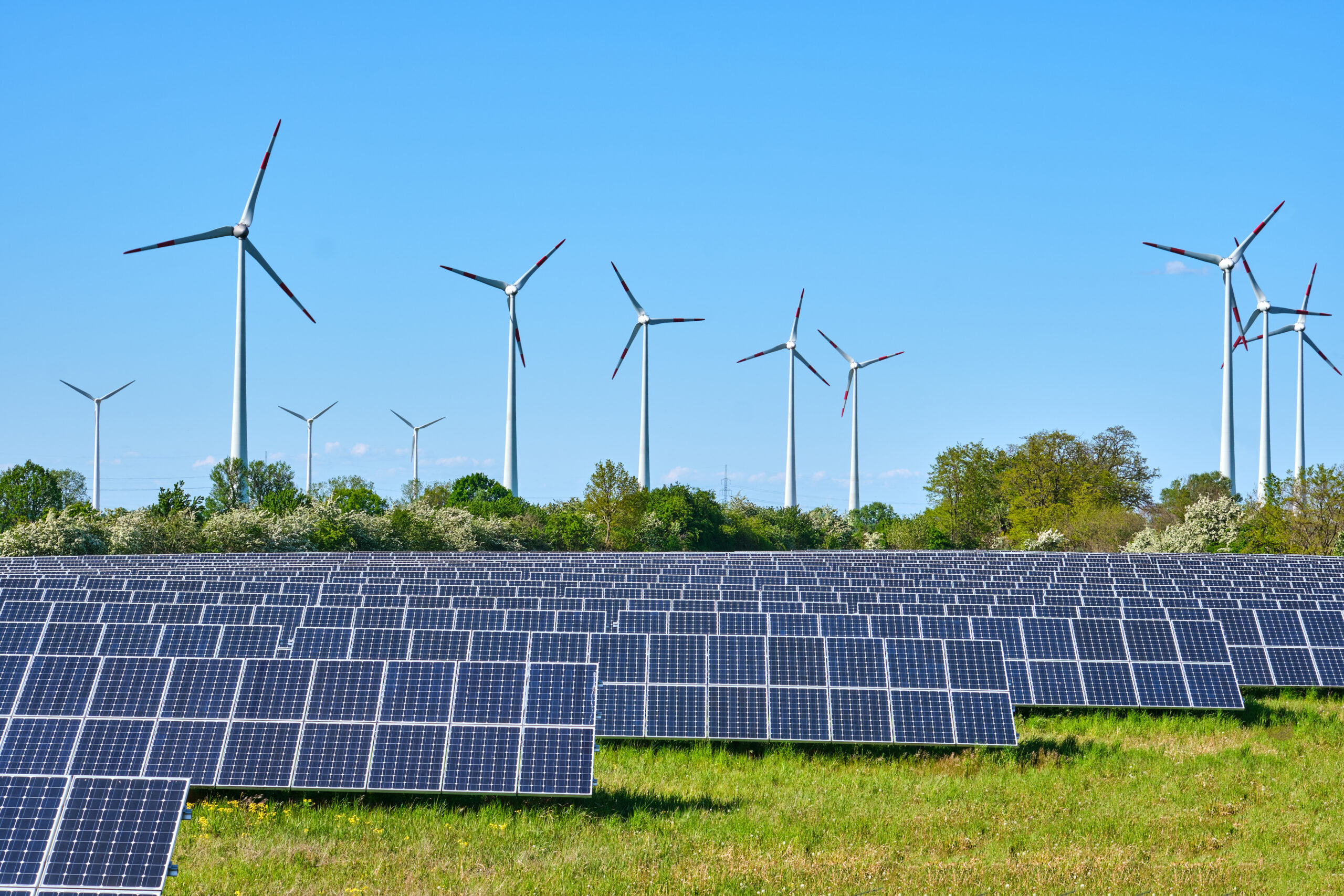
WORK PACKAGES
WP1: PROJECT MANAGEMENT AND COMMUNICATION

A total of five local meetings are planned, which will be supplemented by monthly online meetings. A communication plan will be drawn up at the beginning of the project and a bilingual scientific publication will be published, which will be presented at a final event at the end of the project. In addition, three participatory events with stakeholder will be organised, one in each pilot area, to present the information material and promote knowledge exchange.
WP2: IMPLEMENTATION OF A GIS TOOL FOR ESTIMATING RENEWABLE ENERGY POTENTIALS

The objective of the second work package is to develop a web GIS service for the analysis and spatial visualisation of renewable energy potentials in pilot areas. This includes the provision of information on the potential of photovoltaic systems, wind energy and hydropower sources, as well as an initial estimate of energy needs. The work package is divided into two phases: The first phase includes the creation of a database and spatial analysis to determine the theoretical potential. In cooperation with the other partners, existing data will be evaluated, and a feasibility analysis carried out. In the second phase, a model will be developed to calculate the theoretical potential, taking geomorphological data into account. The results will be made accessible via interactive maps on the project website and will serve as the basis for the multi-criteria tool to be developed in WP5.
WP3 – IDENTIFICATION OF TECHNOLOGIES APPLICABLE IN A CROSS-BORDER CONTEXT

WP3 focuses on the techno-economic aspects of renewable energies that can be integrated into the cross-border energy ecosystem. The characteristics will be systematised to allow an approximate simulation of the feasibility of energy communities, including energy supply, costs, and economic benefits. The first phase includes the analysis of existing solutions, technical and legal constraints, and the exploration of new innovative approaches. The second phase aims to develop a costing model to assess the economic costs and benefits of energy communities, which will be integrated into the final multi-criteria model.
WP4 – ECOLOGICAL INTEGRATION OF RENEWABLE ENERGY SYSTEMS

WP4 deals with the ecological, landscape and cultural integration of renewable energies. The aim is to develop and disseminate know-how to support the management and integration of such systems and to create synergies between research centres and companies. The result will be a manual with proposals, strategies, and models for the environmental integration of renewable energy sources in the region. The work package also consists of two phases: the first focuses on technical aspects and innovative design solutions, while the second aims to identify integration evaluation criteria. The results from this work package will also be integrated in WP5.
WP5 – DEVELOPMENT OF A MULTI-CRITERIA TOOL AND REGIONAL KNOWLEDGE TRANSFER

In the final work package WP5, a multi-criteria tool for sustainable renewable energy communities will be developed. This tool incorporates the results of previous work packages and enables the optimisation of the implementation of renewable energy communities, considering technical, economic, and landscape integration aspects. It will be available as a user-friendly IT system and will facilitate cooperation between companies, authorities, and research institutes. The tool will be tested and optimised in selected study areas. This will be accompanied by information and promotion campaigns and the establishment of pilot offices. The sustainability of the services will be guaranteed by a business plan and the ‘Cross-border Laboratory for Renewable Energy Research and Energy Transition’ establishment will be formalised.